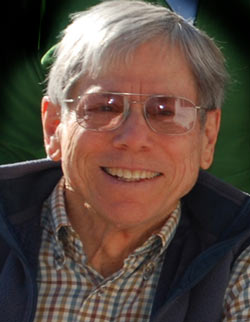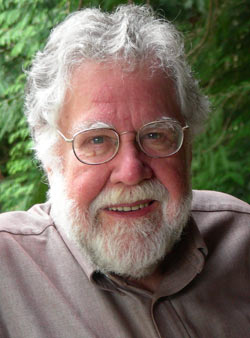Alums Neil McCabe ’65 and Harry Jackson ’56 have agreed to share their stories about making the switch from the private sector to the public sector.
Public to Private and Back Again
Neil McCabe Boalt Hall Class of 1965
 I started out in public practice, working as a Deputy County Counsel for four-plus years and then switching to private practice for the next 14 years (mostly in a solo practice). Then I switched back to public practice in the County Counsel’s office.
I started out in public practice, working as a Deputy County Counsel for four-plus years and then switching to private practice for the next 14 years (mostly in a solo practice). Then I switched back to public practice in the County Counsel’s office.
My transition back to the public sector was incremental. Based on my prior public practice, I started doing work on a limited basis for a number of public entities, while still retaining my private practice. This ultimately led to a contract with the county to work up to half time on county legal issues.
I was reluctant to give up the freedom of private practice, although I sometimes joked that I was free to be a slave to it. I liked certain aspects of that freedom. For instance, if I wanted to buy a computer system, I could make my own decision in short order and just do it. I didn’t have to wait for budget approval or a board meeting. However, I was not as interested in the day-to-day business side of private practice, such as billing. I preferred to just practice law.
Taking public law for a “test drive” as I did convinced me that I wanted to practice public law full-time again. In doing so, I was able to free myself from the business details I didn’t enjoy, and I could focus on the legal work I enjoyed most. I could focus more completely on resolving legal issues rather than also having to consider whether they were money makers. Although there were salary limits, the pay and benefits were steady.
I made the switch back to public law, and I worked full-time in the County Counsel’s office for another 12-plus years. I found my niche there.
In summary, my advice to persons considering switching to public interest law is this:
1. Take public work for a “test drive” by doing selected work for public clients while you are still in private practice.
2. Consider whether there is more or less potential to concentrate on issues within your chosen field in the public sector.
3. Weigh the loss of freedom/flexibility and potential financial up-side, not losing sight of relentless overhead and fluctuating cash flow, of private practice, against the limited but steady pay and benefits on the public side.
Goodbye to Cognitive Dissonance
Harry Jackson ‘56
Port Angeles, WA
 I got started doing pro bono work in ’91 here in Port Angeles. This is a very unpretentious community with a large poverty level population, most of whom are unemployed or marginally employed with dependent children.
I got started doing pro bono work in ’91 here in Port Angeles. This is a very unpretentious community with a large poverty level population, most of whom are unemployed or marginally employed with dependent children.
We had one room in a converted residence which we shared with the abuse victims’ advocates and counselors. We outgrew the agency of which we were then a division, and established our own non-profit corporate identity. Clallam County Pro Bono Lawyers now has a full time non-lawyer staff and 60 volunteer lawyers, County-wide.
Access to justice for a clientele beset with personal, family, housing, employment and survival problems is, for many, the only experience of being treated fairly by the system. They often see themselves as victimized by public and private social agencies, landlords, employers, businesses, collection agencies and by the justice system as well. Not infrequently a client will present with mental health or substance abuse issues. With our help and ability to work with the Courts and the service agencies, many get their lives turned around.
For over 30 years I mainly served the rich and powerful; for the past 13 years, the poor and powerless. Far more psychically satisfying.
Harry Jackson is now in the process of relocating to Davis, California where he intends to find another public interest law position representing and advocating for the disadvantaged.